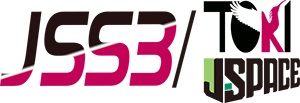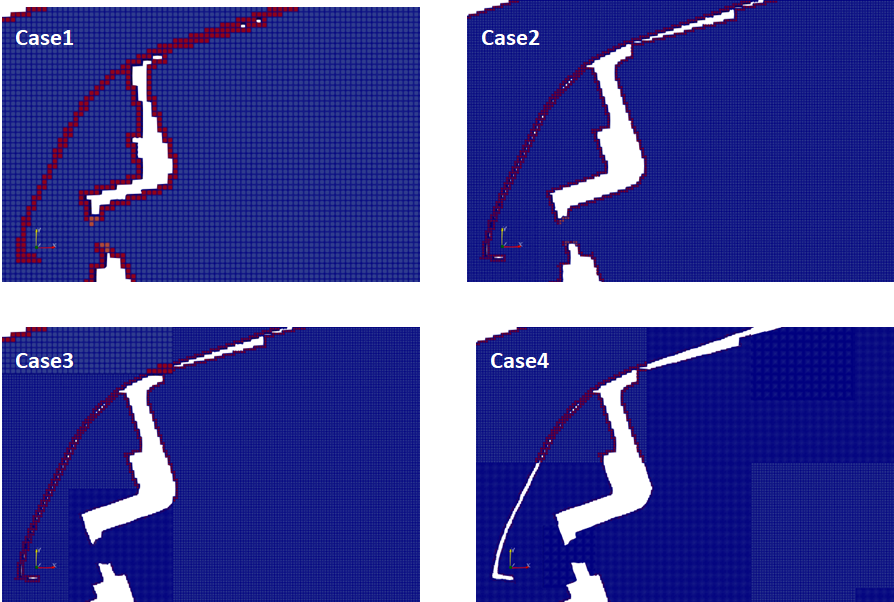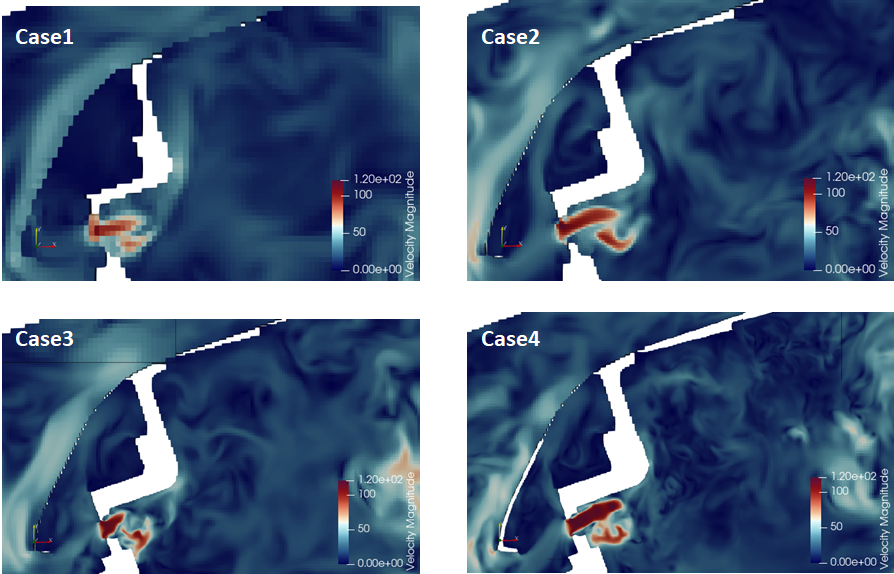Application of the Cartesian grid and an IB method to the analysis of aircraft engine combustors
JAXA Supercomputer System Annual Report February 2022-January 2023
Report Number: R22EDA102G31
Subject Category: Aeronautical Technology
- Responsible Representative: MizobuchiYasuhiro, Director, Aviation Technology Directrate, Aviation Lifecycle Innovation Hub
- Contact Information: Taisuke Nambu, Aviation Technology Directorate, Aircraft Lifecycle Innovation Hub(nambu.taisuke@jaxa.jp)
- Members: Manabu Hisida, Ryohei Kirihara, Takuya Karatsu, Takuhito Kuwabara, Yasuhiro Mizobuchi, Taisuke Nambu, Kei Shimura, Hiroki Yao
Abstract
In order to reduce the cost of mesh genration and achieve practical accuracy, HINOCA-AE, a thermal and fluid dynamics solver with the Cartesian grid, is now being developed. The purpose of this research is to expand the application of numerical analysis for aero engine combustor design.
Reference URL
N/A
Reasons and benefits of using JAXA Supercomputer System
Massive-parallel large scale simulation, Large number of simulations fo software validation
Achievements of the Year
In order to verify whether a solver based on the Cartesian grid and the Immersed boundary method can be used to analyze the flow with practical accuracy, a flow analysis was conducted on a test combustor under non-combustion and combustion conditions. Although there are some issues, such as improving the conservation, it was confirmed that the analysis can be performed with practical accuracy.
Publications
– Non peer-reviewed papers
Takuya Karatsu et.al., “Cold-flow numerical simulation of an aero engine combustor with Immersed Boundary method” AJCPP2023
Usage of JSS
Computational Information
- Process Parallelization Methods: MPI
- Thread Parallelization Methods: OpenMP
- Number of Processes: 1 – 1634
- Elapsed Time per Case: 168 Hour(s)
JSS3 Resources Used
Fraction of Usage in Total Resources*1(%): 0.55
Details
Please refer to System Configuration of JSS3 for the system configuration and major specifications of JSS3.
| System Name | CPU Resources Used(Core x Hours) | Fraction of Usage*2(%) |
|---|---|---|
| TOKI-SORA | 14940636.68 | 0.65 |
| TOKI-ST | 1263.69 | 0.00 |
| TOKI-GP | 0.00 | 0.00 |
| TOKI-XM | 0.00 | 0.00 |
| TOKI-LM | 218.96 | 0.01 |
| TOKI-TST | 0.00 | 0.00 |
| TOKI-TGP | 0.00 | 0.00 |
| TOKI-TLM | 0.00 | 0.00 |
| File System Name | Storage Assigned(GiB) | Fraction of Usage*2(%) |
|---|---|---|
| /home | 1497.34 | 1.36 |
| /data and /data2 | 124408.13 | 0.96 |
| /ssd | 32843.17 | 4.55 |
| Archiver Name | Storage Used(TiB) | Fraction of Usage*2(%) |
|---|---|---|
| J-SPACE | 3.81 | 0.02 |
*1: Fraction of Usage in Total Resources: Weighted average of three resource types (Computing, File System, and Archiver).
*2: Fraction of Usage:Percentage of usage relative to each resource used in one year.
ISV Software Licenses Used
| ISV Software Licenses Used(Hours) | Fraction of Usage*2(%) | |
|---|---|---|
| ISV Software Licenses(Total) | 28.35 | 0.02 |
*2: Fraction of Usage:Percentage of usage relative to each resource used in one year.
JAXA Supercomputer System Annual Report February 2022-January 2023




